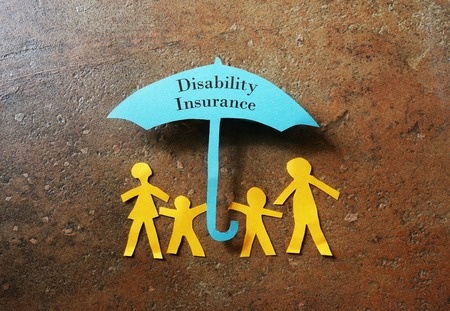As someone who unexpectedly had two back surgeries in 2015, I can tell you that disability insurance is a necessary expense. I was lucky to be employed in the corporate world when the surgeries took place, and had short term disability insurance through my employer which covered my income while I was unable to work. If you are self-employed you are on your own to cover your income if something arises. One of the last things self-employed individuals think about is insurance. That additional bill each month can seem monumental depending on what stage you are in with regard to your business and personal life.

I launched my business in February of this year, and consider my business to still be in the [very] early stages. Therefore, I have a hard time sitting down and adding up all the expenses I now need to cover as an entrepreneur versus an employee of a large company. If you are in the same boat as me, this article is perfect for you. And, quite frankly, even if you are employed by someone else, having your own insurance is definitely something you should explore.

Tania Robinson, FSCP, Financial Planner with MassMutual, is once again sharing valuable information for each of my readers.
If you missed her other articles you can find them here:
Individual vs. Employer Life Insurance Comparison
Life Insurance: 3 Income Tax Advantages
Is Disability Income Insurance Worth It?
You insure your most valuable assets like your home, your car and your life. Most people would agree that they’re worth protection; however, disability income (DI) insurance is something people tend to be less certain about. They’re not sure if they really need it, or if it’s worth the cost. There’s no cut-and-dried answer, but there are some strong arguments to be made in favor of DI.
What Are the Chances You’ll Need It?
When you think about the kind of disability that could keep you from working, usually the first thing that comes to mind is a car accident or other catastrophic injury — in other words, something that could happen, but most likely won’t.
In reality, the most common cause of disability is illness, not accidents or injuries1. Arthritis, back pain, neurological problems and cardiovascular illnesses are all more common than injuries when it comes to disability claims2. And, disabilities are more common than you might think. In fact, one in four 20-year-olds will become disabled before they reach retirement age3.
What is DI?
DI is insurance for a portion of your income. And your income is your most valuable asset. It’s what pays for your essential expenses like housing, food, utilities, clothing, transportation, as well as your not-so-essential ones. Your income may help support members of your family, too.
If you had to stop working due to a disability, the income you’re earning now simply wouldn’t be there anymore. You’d have to find another way to cover your living expenses and to support the people who depend on you. That’s where DI comes into play.
What about Other Options?
Of course, there are a few other sources of income you might be able to draw on if you become disabled. Many people have what’s called group long-term disability insurance through their employer.
If you leave for another job, you may not be able to take your disability coverage with you and your new employer may or may not provide the same benefit. Additionally, if your employer pays for the policy, the benefits you would receive if you became disabled would be taxable.
Most important, the kind of disability insurance you get from work typically only covers about 60 percent of your income, not including any bonuses or commissions you may normally receive. The other 40 percent is up to you. While disability insurance won’t cover 100% of your income, an individual DI policy can help provide additional protection.
Protecting Your Most Valuable Asset
With any luck, you’ll never have to deal with a disability that keeps you from being able to work. But it’s a good idea to have a plan in place, so that if you ever did become disabled you could still cover your expenses and provide for the people who count on you.
1 Council for Disability Awareness 2014 Long-Term Disability Claims Review; Disability Claims by Diagnosis.
2 Council for Disability Awareness 2014 Long-Term Disability Claims Review.
3 US Social Security Administration, Fact Sheet, October 13, 2015.
The information provided is not written or intended as specific tax or legal advice. MassMutual, its
employees and representatives are not authorized to give tax or legal advice. Individuals are
encouraged to seek advice from their own tax or legal counsel.
Provided by Tania K. Robinson, courtesy of Massachusetts Mutual Life Insurance Company (MassMutual)
© 2016 Massachusetts Mutual Life Insurance Company, Springfield, MA 01111-0001
For more information, please see https://www.massmutual.com/individuals/educational-articles/index
FY1091 CRN201809-204867
To contact Tania:
Tania K. Robinson, FSCP
Financial Planner, Investment Adviser Representative
T: (404) 704-3944 | C: (678) 575-9101 | F: (404) 255-8314
https://advisors.massmutual.com/tania-k-robinson
MassMutual – Perimeter
4 Concourse Parkway NE Ste. 300 | Atlanta, GA 30328-5397

